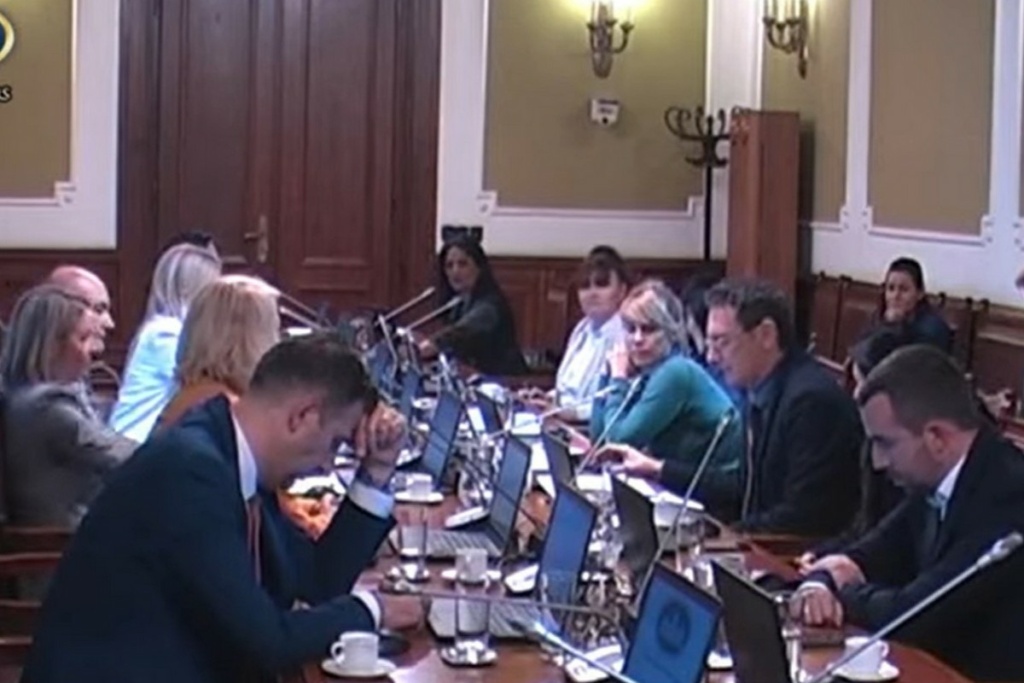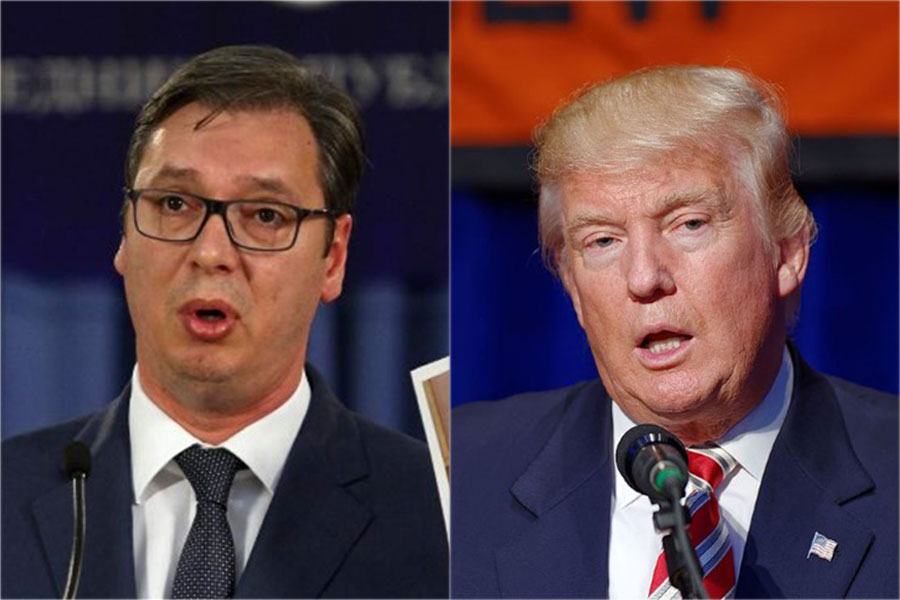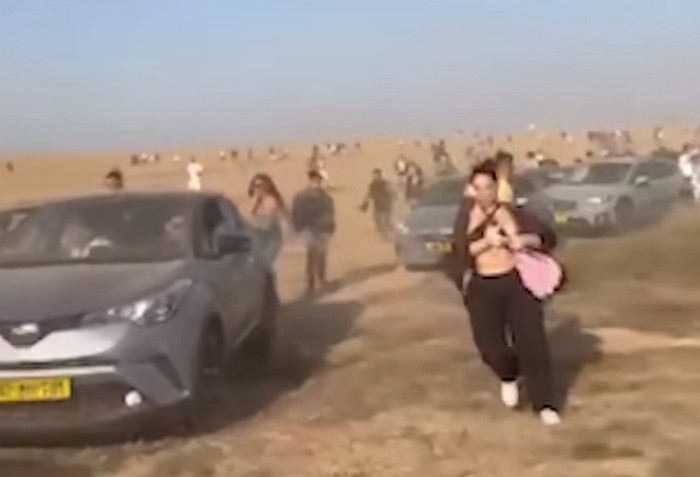Serbian journalists and press freedom advocates have pointed to a concerning deterioration in the media’s ability to report without fear of reprisal under the country’s populist president, Aleksandar Vučić, who scored a sweeping parliamentary victory last December. Critical journalists feel targeted, sometimes in orchestrated campaigns by Vučić supporters, politicians, public officials, and pro-government media.
To better understand the precarious situation for the Serbian press, CPJ spoke with eight journalists and advocates, some of whom have left the country out of fear for their safety. Here’s what CPJ found:
Since January, an increase in attacks against journalists
In the first four months of 2024, the Independent Journalists Association of Serbia (IJAS), recorded around 50 incidents of threats and physical attacks against the press, 17 of which it classified as “serious.” In previous years, the group said, it recorded 20 to 30 serious attacks over the course of an entire year.
The incidents range from protesters insulting reporters covering a demonstration in March, to a security guard forcibly removing a reporter from a local municipal council meeting, to a journalist receiving death threats while investigating a local business project. Individual journalists and entire newsrooms have been the subject of insults, smears, and threats of physical attacks and death made via email and social media.
CPJ was unable to independently confirm each attack, but local journalists say the IJAS documentation reflects the overall atmosphere of declining media freedom under Vučić.
Journalists turned into ‘public enemies’
Vučić is often accused by critics of following in the footsteps of neighboring Hungary’s Viktor Orbán in attempting to build an authoritarian state with total control of the media, where critical news outlets are marginalized, discredited, and attacked with smear campaigns by pro-government tabloids or anonymous online trolls.
In part thanks to Vučić’s grip on media, his party triumphed against a coalition of pro-Western opposition forces formed after two deadly mass shootings and which campaigned against the general culture of violence spilling over from political discourse into real life.
The election victory has seemingly emboldened the president’s supporters to increase their attacks on independent journalists. Ana Lalić Hegediš, a reporter for news site Nova.rs and president of the Independent Association of Journalists of Vojvodina, a regional trade group in the autonomous northern province, said there is a “witch hunt” against journalists, one which “serves as a distraction for the public” ahead of the June municipal elections.
The attacks, say journalists and experts, are not only because of what journalists report but because of who they are. “Government representatives treat them as political opponents for being journalists who report in a balanced way and ask inconvenient questions,” Veran Matić, a 1993 recipient of CPJ’s International Press Freedom Award and a member of Serbia’s Working Group for the Security and Protection of Journalists, told CPJ in an email. The working group, comprised of public prosecutors, police, and journalists, aims to fast-track investigations and prosecutions of attacks on the press.
(CPJ sent questions about attacks on the press to the press department of the president’s office in an email but received no reply.)
Journalists are attacked in orchestrated campaigns
Lalić Hegediš told CPJ that a “coordinated campaign” started against her in March after she criticized, in a panel discussion, the construction of “yet another new Orthodox church” as part of a Serbian nationalist drive in Vojvodina. She said that right after her talk “pro-government tabloids maliciously paraphrased my words saying I advocate the destruction of Serbian churches,” and then “an army of bots” started a bullying campaign on social media with threats and insults and published her phone number. Ruling party politicians commented on her case on TV and in parliament, which triggered a new and ongoing wave of attacks. One person has since been arrested.
According to Matić, such campaigns are “partly organized” by pro-government media and politicians, but then are “joined by a wider spectrum of those who are not organized, but just take advantage of the opportunity.” According to a recent survey conducted by IJAS and the University of Novi Sad, one out of three Serbian journalists say they were verbally threatened in 2023. Additionally, 13% of journalists said they received threats from public officials, and 14% said they were threatened by supporters of political parties.
Many journalists are afraid for their safety
Journalists who spoke with CPJ say they feel vulnerable, with female journalists, who often face gender-based attacks, outlining extra risks. Speaking to nonprofit U.S. media institute Poynter in 2022, Lalić Hegediš said that government attacks on women, who play a leading role in investigative journalism in Serbia, are a way for politicians to humiliate female journalists who have risen in a male-dominated profession.
But harassment affects journalists across genders, and its victims, which also include people living in remote areas, describe a difficult emotional load. “It’s hard to deal mentally with this level of daily harassment — with blackmail, threats, stalking, or even unknown people desecrating my mother’s tomb,” said one journalist, who spoke to CPJ via email on the condition of anonymity due to fear for their safety.
Another local reporter who also spoke to CPJ on the condition of anonymity said in an email that they decided recently to stop covering local issues due to threats, including death threats, they received after investigating local corruption. “I live in a small settlement where I am completely exposed so I needed to relocate to protect my family,” said the reporter. Several journalists CPJ spoke with have relocated within Serbia and others, like Lalić Hegediš, have temporarily moved out of the country.
Authorities are not doing enough to protect journalists
Several people CPJ interviewed mentioned that the impunity in high-profile journalist murder cases, like that of Slavko Ćuruvija, have contributed to a toxic atmosphere in which journalists are seen as legitimate targets.
Ćuruvija was shot dead on April 11, 1999, in what appeared to be a professional murder at outside his home near the Yugoslav Parliament in the capital of Belgrade. In February 2024, a court overturned the convictions of all four men charged with his murder and acquitted them in a final verdict that cannot be appealed. The acquittal “carries the message that violence in Serbia is officially legalized and that the murder of journalists is not a punishable offense,” said Lalić Hegediš.
Authorities will not protect “journalists who report on the truth that does not suit the government. Authorities do not care about attacks against journalists like me,” the reporter who relocated due to safety concerns told CPJ. The IJAS and University of Novi Sad survey showed that 90% of journalists think that authorities have inadequately responded to threats against the press.
In interviews with CPJ, journalists said they wanted authorities to not only verbally condemn violence but to more forcefully investigate threats and violence, to prosecute the killers of journalists, and to provide police protection when necessary.
Matić said that there is one positive development as prosecutors appear less likely to reject journalists’ cases in recent years. But he said that until politicians at the highest level stop threatening journalists, progress will remain elusive. “Threats and violence are condemned in principle,” he told CPJ, “but often those who are threatened are the target of criticism and name-calling and targeting by representatives of the current government and parliament.”








 Medijski amandmani umiru u skupštinskom mraku: Noćno zasedanje Odbora, u četiri čina
Medijski amandmani umiru u skupštinskom mraku: Noćno zasedanje Odbora, u četiri čina Vučić i Tramp: Netrpeljivost prema medijima i podrugljivo odbacivanje drugačijeg mišljenja
Vučić i Tramp: Netrpeljivost prema medijima i podrugljivo odbacivanje drugačijeg mišljenja Saragusti: Niko sada nije bezbedan. Zločini su jezivi. Novinari su ubijeni dok obavljaju svoj posao
Saragusti: Niko sada nije bezbedan. Zločini su jezivi. Novinari su ubijeni dok obavljaju svoj posao
Ostavljanje komentara je privremeno obustavljeno iz tehničkih razloga. Hvala na razumevanju.